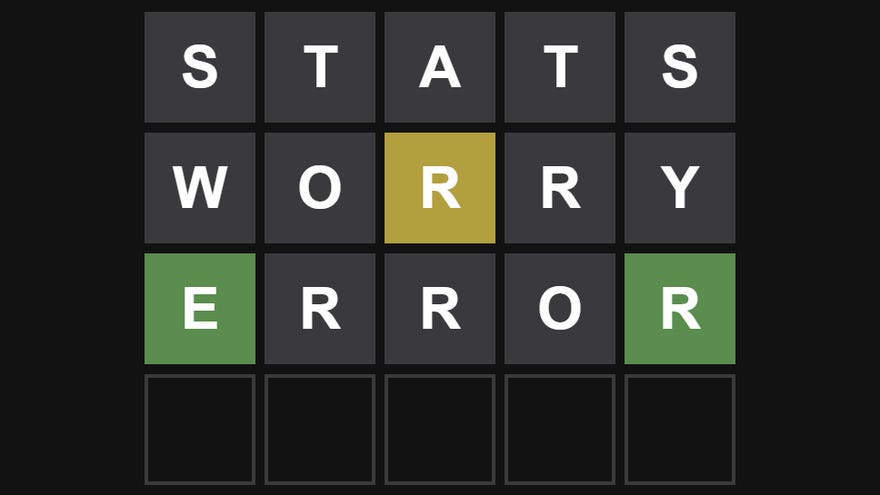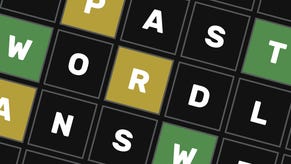Wordle's official WordleBot analysis make me feel even more foolish
How dare you use maths to prove how stupid I am
The New York Times have launched an official "companion" for Wordle, which judges your daily answer against an adversary even more cruel, petty, and unforgiving than the family WhatsApp group: mathematics. If you want, WordleBot can analyse your guesses and figure out how optimally you played at each step. Backed up by numbers, it'll explain your good plays and, if you're me, make you feel a bit daft for some of the bad plays.
Visit WordleBot after tackling the day's puzzle and it'll attack you with various numbers rating your solution. The best part is a step-by-step analysis of each guess, looking at how many possible answers you excluded and how close you could have been to the answer. I felt good about it at first.
"Solid choice," it told me about my first guess. "On average, someone who guesses [REDACTED] will cut the number of possible solutions to just 194." Hell yeah. Go me. My second guess was also pretty good.
Nice," WordleBot told me. "Before your guess, there were 44 possible solutions, but now there is only one. You should solve the puzzle on your next turn." Oh no.
Reader dear, I did not solve the puzzle on my next turn. I burned several duds fishing for letters before hitting it on guess 5. Sure, I wasn't feeling good about going 5/6 today, but until WordleBot stuck its nose into my business I had no idea I 'should' have got it on turn 3. Shove it, WordleBot.
The NYT explained in Thursday's announcement that WordleBot was born of debate over the best word to pick for your first guess.
"WordleBot started as an attempt to settle this question once and for all," said Josh Katz and Matthew Conlen. "But along the way we realized that (a) the answer was more complicated than it seemed; and that (b) we were more interested in how closely our guesses matched those that would be chosen by a machine designed to solve Wordles."
So they created a robot to make me feel bad. They say that they hope WordleBot "will help you think about Wordle more analytically, which will help you get better at solving the puzzles in the long run". It is useful for that, as much as I loathe to admit it. They also suggest that its efficiency ratings could "serve as a tiebreaker of sorts" if you're in heated competition with your pals and tie on a puzzle.
I'm more of a -dle player, me. I flit across the many, many daily puzzle games which borrow parts of the Wordle formula (and often parts of its name), casually checking out songs and movies and maps and weather and Street View and footballers rather than settling down to master any one game. And that's a perfectly reasonable explanation for why I did bad today, okay. Shut up.
Use our Wordle Solver tool to help you figure out the answer to any Wordle in moments! Just pop your current guesses in the grid and watch the tool instantly give you all the potential answers.




